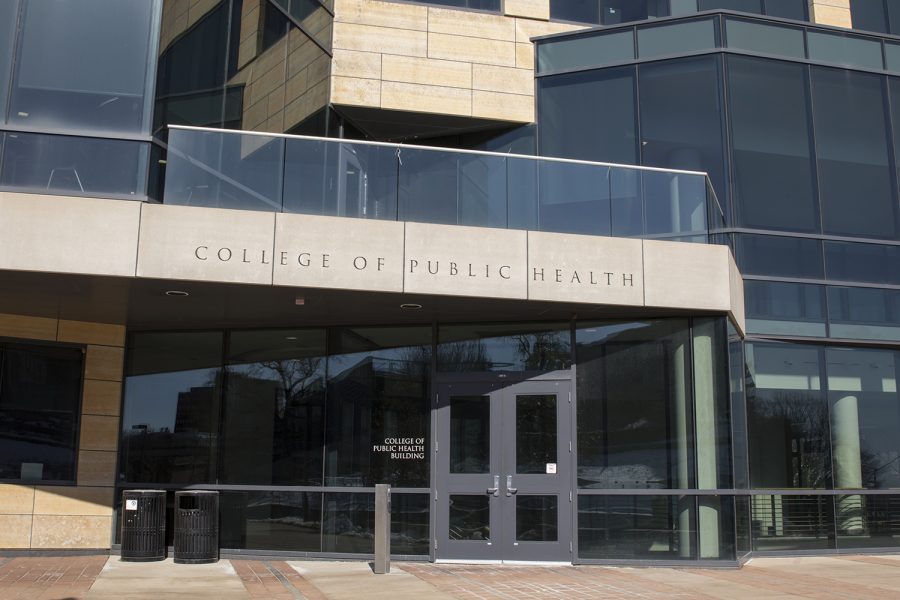First class of UI public-health graduates will enter a workforce on the frontlines of pandemic response
The first graduating class of public-health students at the University of Iowa will graduate in May, entering a world where public health now plays a key role in daily life.
The College of Public Health is seen on March 11, 2019.
May 10, 2020
The irony of graduating with a public-health degree during the COVID-19 public-health crisis isn’t lost on University of Iowa senior Olivia Teach — and that’s especially the case for the undergraduate program’s first spring public-health cohort.
Teach is one of 42 students who will graduate with a UI degree in public health, second only to the first five public-health students who graduated in December 2019.
“But I think it has made me feel more calm about the situation,” Teach said. “Because I can go back to what I’ve learned in public health and what I’ve learned about pandemics and apply that to what’s happening now, and I can have a better worldview.”
The UI College of Public Health began offering the undergraduate program to students four years ago. Since the Fundamentals of Public Health course was first offered on campus in 2013, over 1,500 students have enrolled, Margaret Chorazy, UI College of Public Health director of undergraduate programs, said in an email to The Daily Iowan.
Teach said she has seen her classwork in action seeing the Federal Emergency Management Agency respond to the COVID-19 crisis, as well as disease transmission as the virus can spread quickly through respiratory droplets.
For Teach’s last assignment in her Field Experiences and Public Health class, she’s creating a public service announcement about how people at high risk for contracting the coronavirus can grocery shop safely.
RELATED: University of Iowa public-health experts talk COVID-19 ways people can stay healthy
“(Students) are in a unique position to understand the local and global dynamics of this pandemic, including the public-health efforts to decrease the transmission of the virus,” Chorazy said. “They are seeing many of the lessons learned in the classroom play out in real life. Many students have become important sources of information for their friends and family, helping to interpret what we’re hearing in the news day-to-day. Our graduates are also finding public-health jobs created in response to this pandemic.”
UI senior and public-health major Austin Wu said public-health services in his experience do not receive much funding.
Wu pointed to examples of contact tracing, which requires field workers to go out and track the transmission of a disease from those infected to places visited and people they came in contact with.
Those kinds of field-based workers were cut from the public-health workforce as a result of the 2008 recession and never fully restored, Wu said. After COVID-19, however, Wu said he wonders if that will change.
Nationwide, local health departments have lost nearly 25 percent of their workforce since 2008, according to the National Association of City and County Health Officials.
“So that might be an interesting shift in what happens,” Wu said. “Are we going to see increased funding for public health? And if that does happen, how long is that going to last?”
RELATED: How the UI moved to virtual instruction in a matter of weeks
Another senior, Leighton Hill, will enter a workforce on the frontlines of pandemic response to the global outbreak of COVID-19, the disease caused by the novel coronavirus.
“It’s been very interesting,” Hill said of studying public health during this pandemic. “And I think it’s hard because you learn about this stuff in class and how diseases spread — what could happen and how bad it could get. But to see it actually happen is frustrating.”
Hill said she is grateful for her graduating class and expressed her excitement to see what everyone does in the future. Hill said she and her classmates are all passionate about public health.
“I don’t think any of us ever expected this to happen when we came in,” Hill said. “The work that we want to do is to prevent situations like this, so it’s hard to watch what is happening throughout the world and see how much it is affecting people.”



